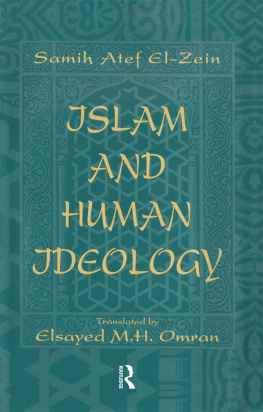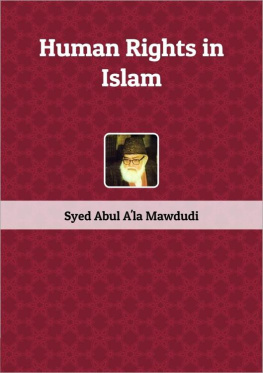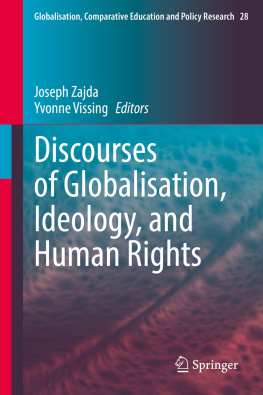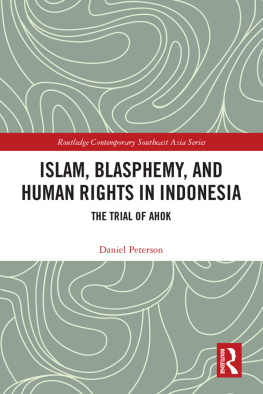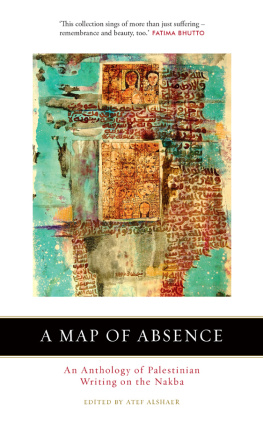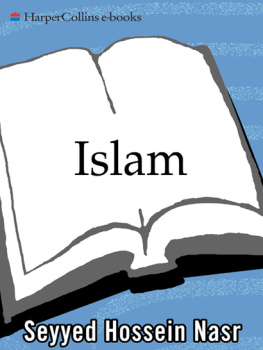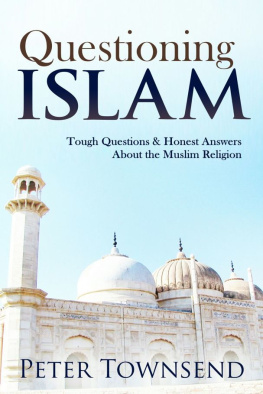First published 1996 by Kegan Paul
Published 2018 by Routledge
2 Park Square, Milton Park, Abingdon, Oxon OX14 4RN
52 Vanderbilt Avenue, New York, NY 10017
First issued in paperback 2018
Routledge is an imprint of the Taylor & Francis Group, an informa business
Copyright Muhammad El-Zein 1996
All rights reserved. No part of this book may be reprinted or reproduced or utilised in any form or by any electronic, mechanical, or other means, now known or hereafter invented, including photocopying and recording, or in any information storage or retrieval system, without permission in writing from the publishers.
Notice: Product or corporate names may be trademarks or registered trademarks, and are used only for identification and explanation without intent to infringe.
British Library Cataloguing in Publication Data
El-Zeyn, Samih Atef
Islam and Human Ideology
I. Title . Omran, Elsayed M. H.
340.59
ISBN 0-7103-0539-7
US Library of_Congress Cataloging in Publication Data
Zayn, Samh tif
[Islm wa-aydiyljyat al-insan. English]
Islam and human ideology / Samih Atef El-Zeyn : translated with an
introduction and notes by Elsayed M. H. Omran : preparation and
presentation by Nabih Sidani and Issam Ghandour.
385 pp. 19 cm.
Includes bibliographical references (p.366) and index.
ISBN 0-7103-0539-7
1. EconomicsReligious aspectsIslam. 2. IslamEconomic
aspects. I. Title.
BP173.75.Z3413 1996
297.197785dc20 95-20721
CIP
Set in 10 on 12 Palatino
by Intype London Ltd
ISBN 13: 978-1-138-86998-1 (pbk)
ISBN 13: 978-0-7103-0539-8 (hbk)
Few people would probably question the statement that the Islamic faith is one of the least understood religions in the West. This lack of understanding may be attributed to two main reasons. First, the minuscule amount of accurate, reliable and comprehensive information which exists concerning Islam in the West. Apart from basic information about Islam in some specialized monographs and textbooks not readily accessible to the average reader, most of the information available is either too elementary or fragmentary. What is usually missing from the picture, for some incomprehensible reason, is information which presents Islam as a humane and compassionate religion, a religion encompassing the entirety of life and rightfully described as a full and complete way of life. Second, the existence of a tremendous amount of distorted and biased information about Islam to which the English-speaking person is constantly and persistently exposed. The use in recent times of such negative terms as militant, resurgent or fundamentalist in relation to Islam has unfairly overshadowed the great emphasis the Islamic faith places on human relations, kindness and harmony among members of the human race.
Apart from the two reasons given above, the lack of understanding concerning Islam may also be attributed to the fact that the gracious and noble teachings of this great religion seldom receive adequate and factual coverage from the media here in the West. Such media coverage appears to be more inclined towards selectively reporting dramatic and sensational events in connection with Islam than in educational and in-depth coverage of the religion. This regrettable imbalance is evidenced by the fact that the media hasten to use the desperate actions of a few disgruntled individuals as justification for the overgeneralizations and labels which have readily been attached to the Islamic religion. For even though history is replete with examples of disenchanted individuals in every religion committing irrational and unjustifiable actions, Islam is probably the only religion that is so harshly judged by the actions of a few of its followers. Resting on no historical, sociological or linguistic evidence, these unfair assumptions legitimize certain popular and inaccurate views of Islam as a violent and fanatical religion; they further portray Islam as a religion which opposes modern views and progress.
These drastic and unfair generalizations and labels have had the negative effect of prejudicing the average individual who might otherwise approach Islam with an open mind. They have also, unfortunately, overshadowed and obscured many of the obvious truths about Islam, its essence and message. Anyone who manages to lay aside these stereotypes and approach Islam with a sense of fairness and open-mindedness would see the true essence and spirit of this religion. It would then become evident that the message of Islam provides a reasonable and viable solution for the problems which appear to afflict mankind.
In this world of ours, despite the great technological advances man has achieved as well as the host of social services and programs that have been made available in present-day society, social problems, evils, poverty and deprivation continue to exist. The gap between the rich and poor grows wider and feelings of deprivation and alienation continue to mount among the less privileged segments of the society. The feelings of disillusionment, frustration and resentment created by this gap are manifested by the frightening increase noticed in the types of crimes that are committed daily. The family, once considered the bulwark of society, is witnessing unprecedented disintegration owing to the increase in the divorce rate, particularly in the West where the proportion of unsuccessful marriages has already exceeded 50 per cent. Traditional social values are being undermined by the increasing emphasis being placed on material achievements and acquisitions. Thus, the individual in our modern society finds himself pressured by society, family and his peers to pursue a disproportionate number of material goals and achievements regardless of the price to be paid in the pursuit of such goals.
This great emphasis on material achievements is usually coupled with a lack of emphasis on spiritual matters. Consequently, the individual finds himself faced with an overwhelming amount of technological changes and achievements without his having the spiritual guidance to deal with such material progress. He thus becomes himself unable, in view of the rate of change in his environment, to have a constant set of values enabling him to strike a balance between material and spiritual needs. If he succumbs to the material pressures surrounding him, his entire existence will be driven by the quest for material objects to the extent that in time he will find himself living in a spiritual vacuum. The deeper a person immerses himself into this material life, the more self-centred and individualistic his thinking will be and the more difficult and elusive salvation will become. It is at this point in a persons life that religion can help him regain the balance he has lost between the material and the spiritual, acquire the proper perspective and establish a more worthwhile existence. In addition, religion can help him develop an appreciation of the blessing of creation, and the true meaning behind his existence on earth. It can further teach him to appreciate the necessity of living a life of unselfishness, caring and compassion towards his fellow human beings, a life in which there is a balance between material and spiritual aspects.
Islam provides a model of religion which distinctly addresses all of mans needs and ensures the existence of a balance in his life. Islam provides man with guidance not only in how to strike a balance between the spiritual and material aspects of his life, but also in how to live his life in society. Accordingly, a Muslims life must be a constant struggle to be a constructive force in society, a force which guides, helps and heals. Islam strongly emphasizes this aspect of a Muslims life and requires that his faith and values be reflected in his behaviour towards others in the society. For while Islam places great emphasis on the ritualistic aspects as they bring discipline into a Muslims life, it places equal emphasis on the spiritual and pragmatic aspects which must underscore a Muslims relations with his community.

